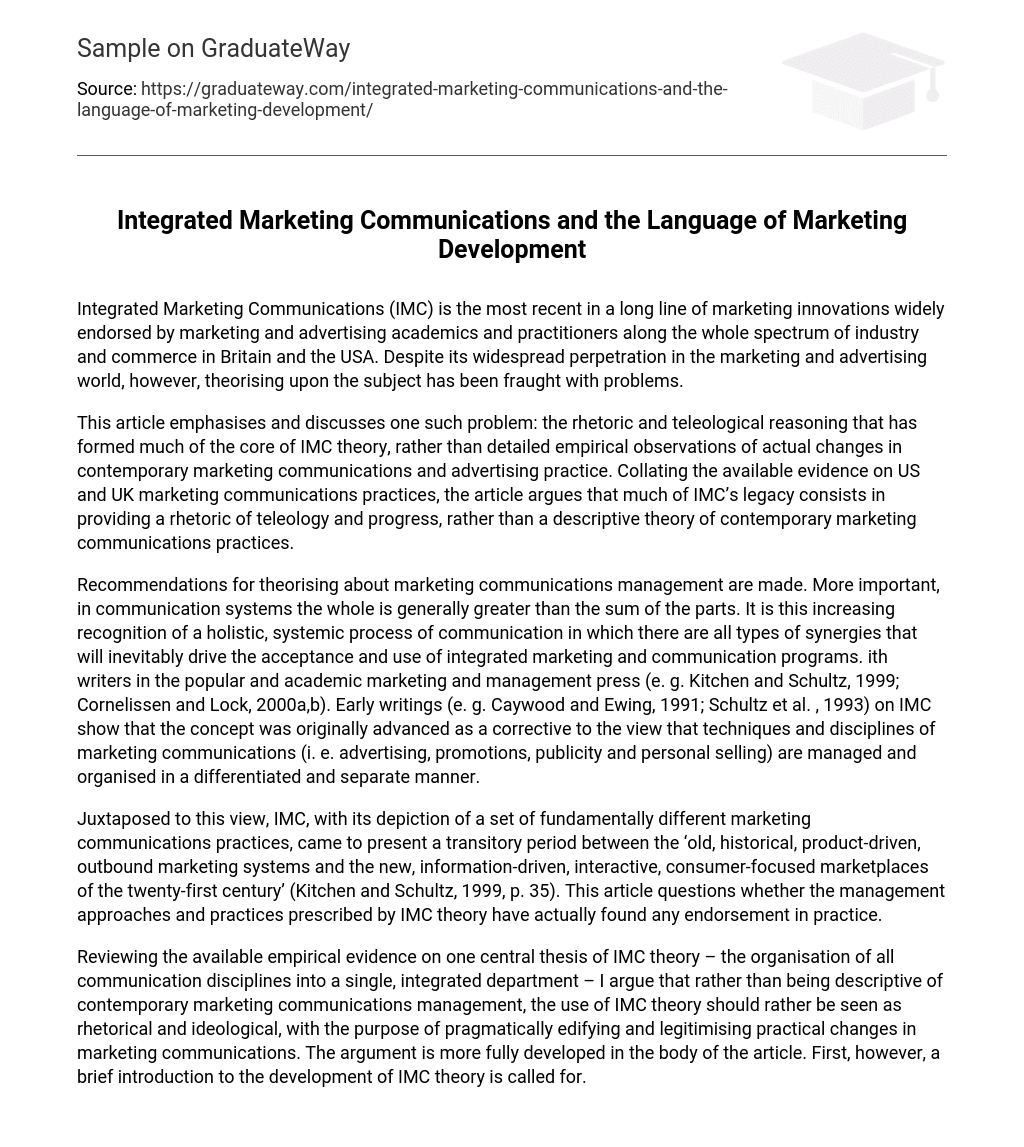Integrated Marketing Communications (IMC) is the most recent in a long line of marketing innovations widely endorsed by marketing and advertising academics and practitioners along the whole spectrum of industry and commerce in Britain and the USA. Despite its widespread perpetration in the marketing and advertising world, however, theorising upon the subject has been fraught with problems.
This article emphasises and discusses one such problem: the rhetoric and teleological reasoning that has formed much of the core of IMC theory, rather than detailed empirical observations of actual changes in contemporary marketing communications and advertising practice. Collating the available evidence on US and UK marketing communications practices, the article argues that much of IMC’s legacy consists in providing a rhetoric of teleology and progress, rather than a descriptive theory of contemporary marketing communications practices.
Recommendations for theorising about marketing communications management are made. More important, in communication systems the whole is generally greater than the sum of the parts. It is this increasing recognition of a holistic, systemic process of communication in which there are all types of synergies that will inevitably drive the acceptance and use of integrated marketing and communication programs. ith writers in the popular and academic marketing and management press (e. g. Kitchen and Schultz, 1999; Cornelissen and Lock, 2000a,b). Early writings (e. g. Caywood and Ewing, 1991; Schultz et al. , 1993) on IMC show that the concept was originally advanced as a corrective to the view that techniques and disciplines of marketing communications (i. e. advertising, promotions, publicity and personal selling) are managed and organised in a differentiated and separate manner.
Juxtaposed to this view, IMC, with its depiction of a set of fundamentally different marketing communications practices, came to present a transitory period between the ‘old, historical, product-driven, outbound marketing systems and the new, information-driven, interactive, consumer-focused marketplaces of the twenty-first century’ (Kitchen and Schultz, 1999, p. 35). This article questions whether the management approaches and practices prescribed by IMC theory have actually found any endorsement in practice.
Reviewing the available empirical evidence on one central thesis of IMC theory – the organisation of all communication disciplines into a single, integrated department – I argue that rather than being descriptive of contemporary marketing communications management, the use of IMC theory should rather be seen as rhetorical and ideological, with the purpose of pragmatically edifying and legitimising practical changes in marketing communications. The argument is more fully developed in the body of the article. First, however, a brief introduction to the development of IMC theory is called for.





